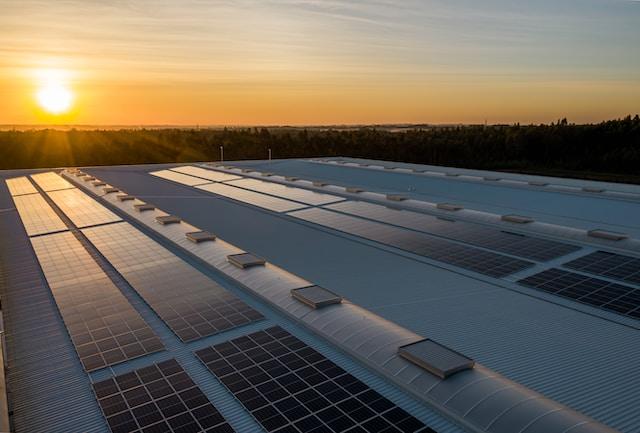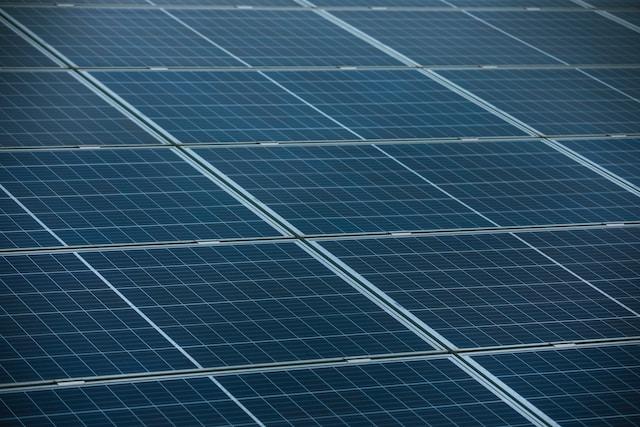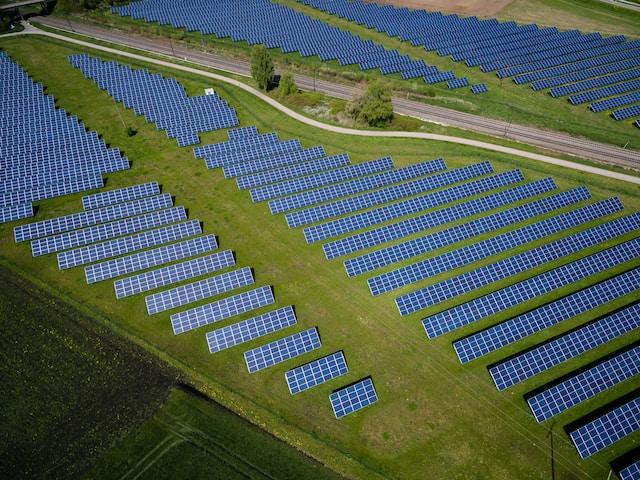
Ensuring Safety with Solar Panels: A Comprehensive Guide
Introduction
As we increasingly rely on renewable energy, ensuring safety with solar energy usage becomes paramount. Solar panels, remarkable devices that convert sunlight into electricity, have seen widespread adoption due to their environmental and economic benefits. However, like all electrical equipment, they carry inherent safety concerns that users must acknowledge. These concerns range from installation hazards and maintenance risks to fire safety and safe disposal at the end of their lifespan. Understanding safety precautions for solar panels is not only crucial for preventing accidents but also essential to ensure the longevity and optimal performance of these energy systems. This comprehensive guide aims to shed light on various safety aspects associated with solar panels, empowering you with the knowledge to safely harness the power of the sun.
Basic Understanding of Solar Panels and Potential Risks
Solar panels, or photovoltaic (PV) panels, work by harnessing sunlight and converting it into usable electricity. This process is achieved through an intricate system embedded within each solar cell. As sunlight strikes the panels, the solar cells generate a flow of electrons, resulting in direct current (DC) electricity. An inverter then transforms this DC electricity into alternating current (AC) electricity, which can be used to power homes and businesses. While solar panels offer significant benefits, it's important to understand the potential risks associated with their use. One of the primary concerns is electrical safety. Since solar panels produce electricity, they can pose a risk of electric shock if not handled correctly. This risk is especially present during installation, maintenance, or repair when live wires may be exposed. Another concern lies in the panels' installation location, typically rooftops, which can present risks associated with heights, such as falls. Besides, improper installation can cause structural issues with your roof, leading to potential leaks or damage. There's also the potential for fire hazards if solar panels are incorrectly installed or poorly maintained. Overheating components, faulty wiring, or malfunctioning inverters can all contribute to increased fire risks. Lastly, solar panels, like any other electronic equipment, contain materials that can be harmful to the environment if not disposed of correctly at the end of their lifespan. Thus, it's essential to consider the end-of-life management of solar panels to mitigate environmental risks. By recognizing these potential risks, users can better prepare and implement necessary safety precautions, contributing to a safer and more effective use of solar energy.
Safety Precautions during Installation
Choosing to harness solar energy is a significant decision, and ensuring safe installation is a crucial aspect of this process. The first step is the selection of a qualified solar installer. Choosing a professional with appropriate certifications and a solid reputation guarantees that your solar panels are installed according to industry standards, minimizing any potential safety risks. Checking reviews, asking for references, and comparing quotes can help you make an informed decision. Safe installation goes beyond hiring a professional. Certain considerations must be kept in mind to ensure safety throughout the process. Firstly, the installer must conduct a thorough site inspection to evaluate the condition of the roof, its load-bearing capacity, and the most suitable location for maximum sunlight exposure. They should also consider potential risks such as nearby shade-causing structures or trees, and proximity to power lines. Proper equipment plays a pivotal role in the safe installation of solar panels. Installers should utilize high-quality solar panels, inverters, and mounting systems that meet the national safety standards. Moreover, using appropriate protective gear is vital to avoid accidents. This includes safety harnesses to prevent falls, electrical gloves to protect against electrical shocks, and safety glasses to shield from debris during drilling or mounting the panels. Remember, safety is not a one-time concern but a continuous process. Regular maintenance and periodic safety checks are equally important after the panels are installed. Taking these precautions during installation can help to avoid potential hazards, ensuring that your transition to solar energy is as safe as it is efficient.
Safe Operation of Solar Panels
Operating solar panels safely is just as important as installing them correctly, and it begins with regular maintenance and inspections. Regularly inspecting your solar panels ensures they are functioning optimally and safely. Look out for signs of wear or damage such as cracks, discoloration, or loose connections. Dirt and debris can reduce the efficiency of your panels, so routine cleaning is necessary. However, remember to use recommended cleaning equipment and avoid harsh chemicals that could damage the panels. It's also wise to hire a professional for an annual detailed inspection to identify any potential issues that might not be visible to the untrained eye. Solar panels are built to withstand various weather conditions, but extreme scenarios call for additional safety measures. In case of high winds, ensure that the panels are securely fastened to prevent any damage or accidents. For regions prone to snow, consider installing solar panels at a steeper angle to allow snow to slide off. However, avoid removing snow manually as it might scratch the panels or cause injury. During heatwaves, the efficiency of solar panels might drop, but they are designed to handle such temperatures. Ensure adequate space for cooling and do not spray cold water on hot panels as it might cause cracks. The safety rule of thumb while performing any maintenance or repair work is to disconnect the solar panels. This is crucial to prevent electrical shocks as solar panels continue to produce electricity as long as they're exposed to light. It's also advisable to consult with a qualified technician for any repair or maintenance tasks that involve electrical components. By understanding these safety measures, you can reap the benefits of solar energy while ensuring the safety and longevity of your investment.
Fire Safety and Solar Panels
Fire safety is a crucial aspect when it comes to solar panels, given the electrical nature of their operation. The potential fire risks associated with solar panels largely stem from faulty installation, poor maintenance, and substandard components. These factors could lead to electrical malfunctions, producing sparks that might ignite a fire if they come into contact with flammable materials. It's also worth noting that, in the unlikely event of a fire, the panels' constant electricity production could pose challenges for firefighting operations. To minimize these risks, several precautions should be in place. Firstly, choosing qualified installers and high-quality components ensures that your solar panel system meets the necessary safety standards. Regular maintenance and inspections should be carried out to detect and rectify any anomalies like loose connections, frayed wires, or malfunctioning inverters. Besides, keeping the area around the solar panels clear of flammable materials is a simple yet effective precaution. Understanding and implementing fire safety regulations is a responsibility shared by installers, homeowners, and relevant authorities. For instance, the National Electrical Code (NEC) in the U.S. provides guidelines for safe electrical installations, including those involving solar panels. It recommends ample space around the panels for easy access during emergencies. Also, rapid shutdown systems are required for new solar installations, allowing first responders to quickly de-energize the system. Adherence to these regulations is key to maintaining a safe environment around solar panel installations. In conclusion, while the risk of fire from solar panels is relatively low, it shouldn't be overlooked. By adhering to safety standards, conducting regular inspections, and taking necessary precautions, we can harness the power of the sun safely and efficiently.
Safety Measures for End-of-Life Solar Panels
The end-of-life management of solar panels is an important aspect of safety precautions that shouldn't be overlooked. The average lifespan of solar panels is 25 to 30 years, after which their efficiency significantly drops. However, they contain components like glass, plastic, and various metals, some of which could be hazardous if improperly disposed of. Consequently, the importance of safe disposal can't be overstated; it prevents potential environmental contamination and human exposure to harmful substances. Understanding the recycling process is essential to effectively manage end-of-life solar panels. It typically involves disassembling the panels to separate different materials. Aluminum frames and glass can be recycled directly, while the semiconductor material, often containing toxic elements, requires special treatment. Research is ongoing to find more efficient and environmentally-friendly methods to extract these valuable materials from spent panels. Engaging professionals for safe disposal or recycling is highly recommended. They have the necessary expertise, equipment, and knowledge about local regulations and standards for the disposal and recycling of solar panels. Certified recycling companies ensure that solar panels are handled and recycled appropriately, minimizing environmental impact. Some manufacturers also offer take-back programs, providing another safe and convenient disposal option for end-of-life solar panels. In conclusion, end-of-life management of solar panels is a crucial aspect of the solar energy lifecycle. Proper disposal and recycling not only protect our environment and health but also contribute to the sustainability of the solar industry by reclaiming valuable materials for reuse. Thus, as a solar panel owner, it's your responsibility to ensure your solar panels are disposed of safely when they reach their end of life.
Conclusion
In the rapidly growing field of solar energy, understanding and implementing safety precautions is paramount. From installation to daily operation, fire safety, and finally, the end-of-life management of panels, each step comes with potential risks that can be mitigated through knowledge and safe practices. With continuous learning and vigilance, users can ensure the safe use of solar panels, contributing to a sustainable, risk-free energy solution. This article merely scratches the surface of solar safety, and further personal research is encouraged to stay abreast of evolving safety standards and practices. Ultimately, the wider use of solar panels and their full potential can only be achieved when their operation is intrinsically safe. By adhering to safety precautions, we can harness the power of the sun responsibly, ensuring a brighter and safer future for everyone.
May 17, 2023
Share:
Fresh off the Press
Continue reading
Newsletter
Your journey towards a sustainable lifestyle starts here!
Join our newsletter for the latest on solar panels and clean energy breakthroughs.






